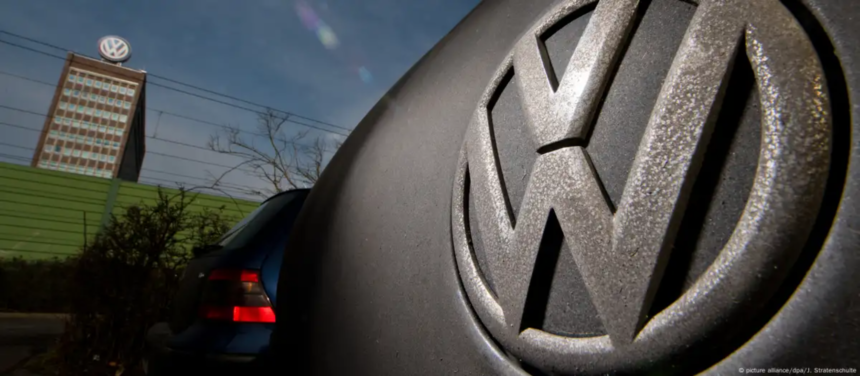Germany’s economy is currently in crisis mode, especially in the automotive industry, where mass layoffs loom. The critical question is: who will build the cars of the future?
At the start of 2025, Germany’s economic outlook is grim, with the automotive sector being hit hardest. As reported by Deutsche Welle (DW), Volkswagen, the country’s largest car manufacturer, has made the unprecedented decision to start closing its factories in Germany.
Volkswagen’s Historic Move and Union Agreement
Before the holiday season, an agreement was reached with labor unions, which is being hailed as a “Christmas miracle.” This deal will cut over 35,000 jobs and reduce production by nearly a quarter, but without immediate layoffs or plant closures. Workers will be offered early retirement and severance packages up to 2030, though production capacity will be slashed by more than 700,000 vehicles annually.
However, this crisis is not limited to Volkswagen. Other car manufacturers and auto parts producers are also preparing for mass layoffs.
Causes of the Crisis
There are several interpretations of the crisis’s causes, with Stefan Bracel from the Center for Automotive Management (CAM) pointing to a “combination of difficulties” in what he describes as Germany’s “polycrisis.” This includes the ongoing shift to electric mobility, software-defined vehicles, and autonomous driving.
Bracel also notes a “new competitive environment” emerging, highlighting that competitors such as Tesla and Chinese automakers are not the only threats.
A spokesperson for the German Automotive Industry Association (VDA) emphasized the role of politics in exacerbating the situation, particularly the cessation of subsidies for electric vehicles in December 2023 and inadequate charging infrastructure, which has reduced current sales.
Management Failures and Global Competition
Frank Schwoppe, an automotive management lecturer, criticizes some manufacturers for poor management decisions, claiming that executives were too hopeful that everything would eventually go well. But as Bracel concludes, things are not going well, with Germany falling behind in international competition. High labor costs, healthcare expenses, and generous vacation policies are among the reasons why Germany is losing its competitive edge.
Shifting Focus: China and the Future of Electric Vehicles
While German manufacturers have excelled in traditional vehicle production, they face significant challenges when it comes to electronic components. Ferdinand Dudenhofer, a renowned expert, argues that German factories are adept at understanding today’s cars, but when it comes to the cars of the future, technology companies will play the leading role.
The key challenge is the rapid rise of electric vehicles (EVs), with China leading the charge. Dirk Doze from the Kiel Institute for the World Economy (IfW) emphasizes that China’s EV market is the largest and most dynamically developing in the world. This trend will likely further widen China’s advantage in the global auto market.
Dudenhofer also warns of the increasing competition from India, where significant players may emerge in the coming years, mimicking China’s success.
Hopes for Battery Development
Despite these challenges, Schwoppe sees hope in the development of EV batteries, noting that they are still far from perfect. Significant advances are expected, particularly with the anticipated shift to solid-state batteries by the end of the decade, which could change the game for the automotive industry.
Job Losses and Future Outlook
A VDA spokesperson warned that if the current trend continues, Germany’s automotive sector could lose 186,000 jobs by 2035 compared to 2019. So far, 46,000 jobs have been lost between 2019 and 2023, with another 140,000 expected to disappear by 2035.
The VDA urges immediate political action, calling for less bureaucracy, more trade agreements, a more competitive tax system, and faster approval processes.
A Long Road to Recovery
Even if the political conditions are improved to make Germany competitive again, the recovery will not be swift. Bracel predicts that the next two to three years will be a major challenge, as many structural problems must be resolved simultaneously. However, he remains optimistic, noting that German politics has finally recognized the country’s polycrisis.
IfW expert Dirk Doze also suggests that the auto industry faces a very tough year ahead, but one that will set the foundation for future recovery.
Automotive expert Ferdinand Dudenhofer recommends that Germany look for new opportunities in the East, while cautiously observing the U.S., noting that changes in policies under Donald Trump could lead to a revival of internal combustion engine vehicles.
In conclusion, Frank Schwoppe sees a glimmer of hope for German manufacturers in the coming years, predicting that by 2025 or 2026, electric mobility in Europe will significantly gain momentum.







